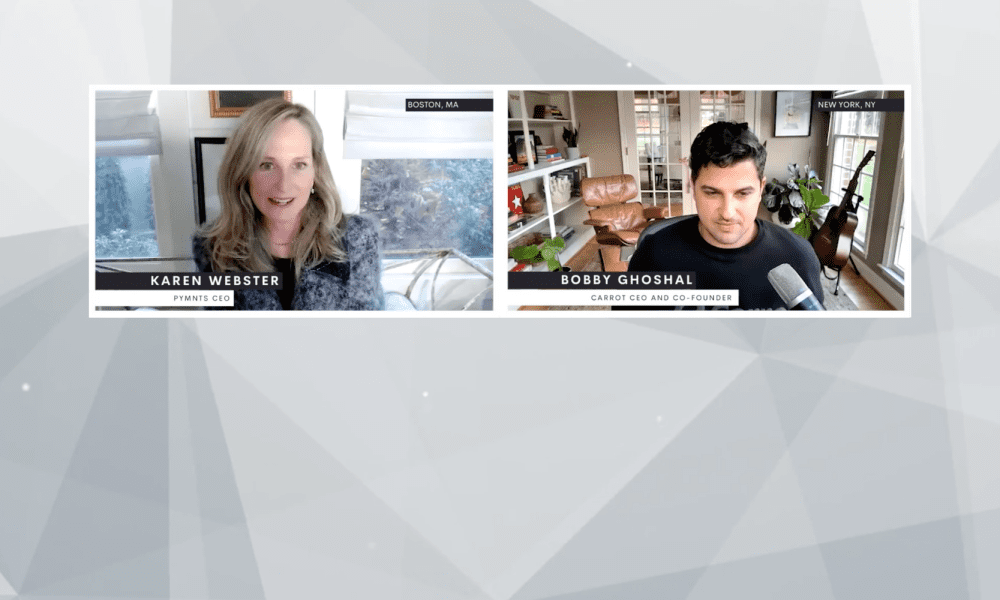You’re shopping for the perfect half-zip for a holiday get-together. You click on something you like and save it to your shopping cart. But you’re sure there has to be something better, somewhere — maybe a lower price, a shade of burgundy with a bit more red in it. So you make a mental note to revisit the cart once you’ve done a little more deal-sleuthing.
Then life interferes, and you put your search for a sweater on the back burner. Do this enough times on enough websites, and — if you’re like the millions of shoppers who have enthusiastically dived headfirst into digital commerce — you’ll leave a scattering of carts all over the internet filled with items awaiting checkout.
For retailers looking to make a sale, this can be frustrating — think of all the potential conversions just sitting there. And if you’re shopping online because you’re looking for a more seamless way to save time and money, tracking down each find you’ve sequestered away can prove to be anything but seamless in the end.
Bobby Ghoshal, co-founder and CEO of Carrot, said that current solutions to the problem aren’t working for anyone. Merchants are bombarding shoppers with emails and display ads to try to get them to come back and finish the transaction (which consumers have learned to tune out). And customers have to keep track of tabs and tabs of shopping history.
“It’s weird to me that shopping is still site-scale,” Ghoshal told Karen Webster in an interview for PYMNTS TV. “It should be web-scale. The web is one large mall.”
Carrot, which launched earlier this month, is a browser extension that allows users to save, organize and share their open shopping carts across various eCommerce websites. While the idea for Carrot came to Ghoshal in a moment of shopping frustration, the extension has benefits for merchants, too — allowing them to increase sharing capabilities, potentially reduce cart abandonment and always keep checkout just a click away.
“You can close these tabs and come back to them a week later,” Ghoshal said. “And all those products that you’ve been adding to carts from around the web all exist in this one feed. It’s an easier way to collect these products and an easier way to get back to these products.”
Keeping Track
It’s a new twist in the world of browser extensions, which typically focus on leading shoppers to the best deals, not simplifying the checkout experience once they’ve found them.
When first installed, Carrot scans a user’s browser history to identify what retail sites they’ve visited and automatically retrieve any shopping carts they’ve left behind. After that, it continues to follow the shopper across the internet and automatically detects when an item is added to a cart, prompting the user to add a note to get them more invested in the shopping experience. Users can also save items through Carrot without adding them to a cart.
“Carrot is about curation; it’s about collecting,” Ghoshal told Webster, noting that this is a “different mindset completely” from other retail browsing extensions that focus on coupons or cash back.
Users can also put together different collections of items for birthdays, weddings and other life events that they can share with friends and family. Ghoshal said Carrot has even seen people put collections together around items to buy when they get paid next or during a certain season. That feature also opens the door to allow creators and influencers who could potentially monetize products that they like and recommend to others.
“You can literally forget that Carrot exists, and it would still work on your behalf and help you collect these products,” he noted.
And as merchants grapple with Apple’s recent privacy changes and prepare for a future without cookies — both moves that will make it harder to track users across the internet — Carrot offers a simpler way for eCommerce sites to stay top of mind for consumers. Wherever they go, Carrot stays at the top of the browser, reminding shoppers where they’ve been.
“We love the affiliate model,” Ghoshal said. “We also think it’s going to be huge in the future because of first-party cookie issues, iOS 15 and the Facebook costs ramping up. There are all sorts of issues right now in the ad space, and I think people are going to look to our model.”
See also: Poshmark Sales Hurt by Apple Privacy Changes
More Features Coming
Ghoshal said Carrot is also testing functionality that allows Carrot to notify consumers when a price drops at several retailers, which it could someday roll out on a wider scale.
“It’s one of the superpowers of what we’ve built,” he said. “We’ve got the product, we know you want it, it’s stored in this place, it’s stored in this list. We’re now making sure we can reliably get you that product drop or price drop notification. That is a fairly hard problem to do across all stores on the web.”
PYMNTS research has found that 84% of consumers have checked online for discounts or sales in the past 12 months, and 11% do so multiple times per day.
Related news: 73M US Consumers Are Already Living in the Connected Economy
“We’re trying to find these magical moments where Carrot is almost invisible, and in the right moment, we rear our head and say, ‘Hey, this thing you want is now available at a better price,’” Ghoshal said.
Carrot is also testing product availability notifications, though it hasn’t yet launched them, and plans to start sending an end-of-week email to prompt consumers to finalize their purchases without having to open a browser tab or check Carrot.
“I’m hoping that next year, next holiday season, hundreds of thousands, if not millions, of people are shopping in a very different way — in a much more thoughtful, seamless way,” Ghoshal said.







